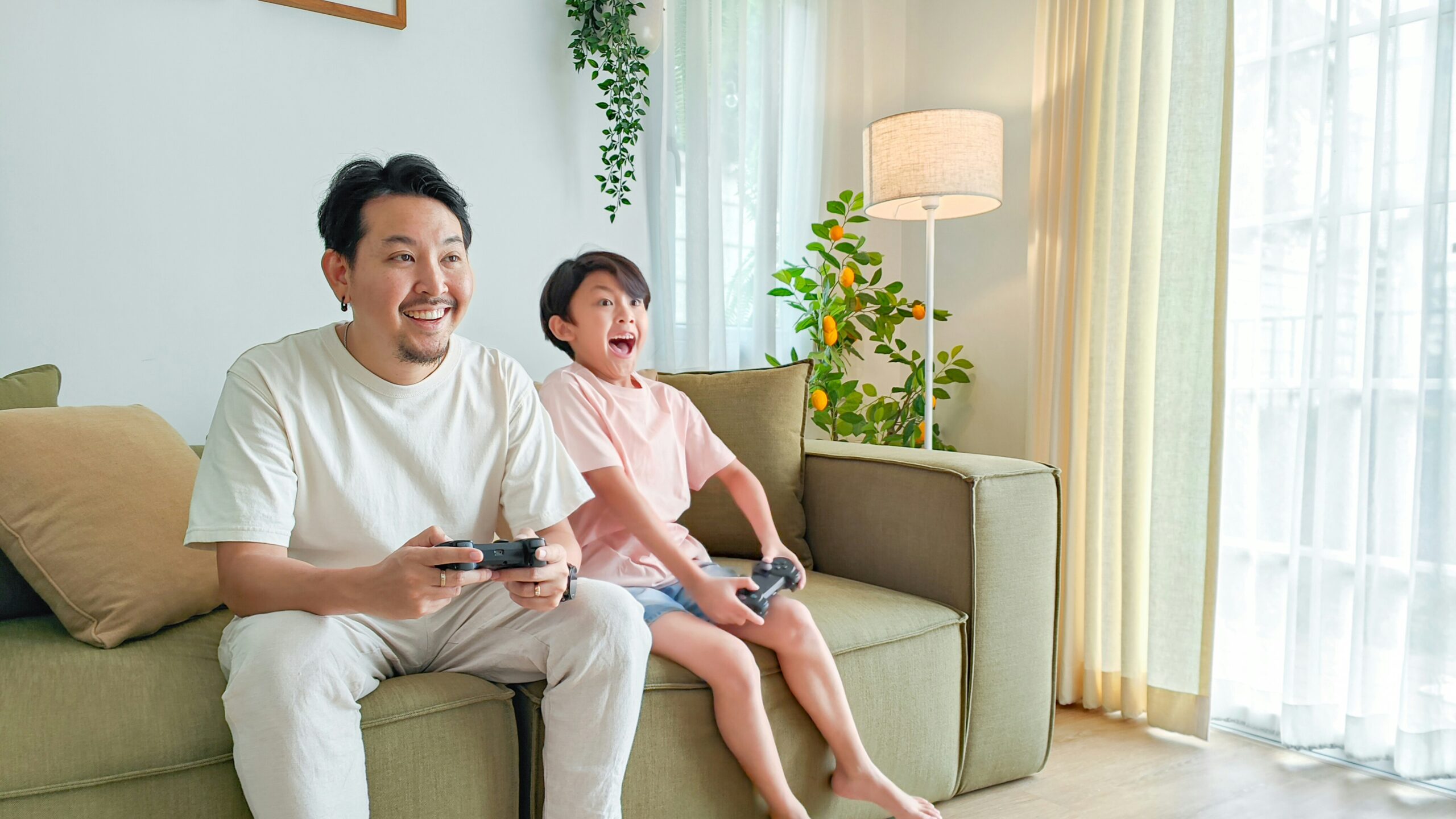
As Well As, Not Instead Of: Parental Engagement with Screen Time for Neurodivergent Youth
Traditionally, screen time has been viewed as a distraction that takes away from more “productive” or “wholesome” activities. Parents worry that their children are spending too much time in front of screens instead of engaging in physical play, reading, or socializing face-to-face. This dichotomy—screens versus other activities—creates a rigid framework that can lead to guilt and anxiety for both children and parents.
However, screen time has become an integral part of family life. For neurodivergent youth—those with autism, ADHD, dyslexia, and other neurodevelopmental differences—screen time can offer unique benefits. From educational apps and interactive games to social media and streaming services, screens provide engaging and supportive experiences. The key to addressing concerns about screen time lies in adopting a balanced approach: thinking “as well as” rather than “instead of.”
The concept of “as well as, not instead of” emphasizes the importance of parental engagement in gaming with your child, rather than allowing screen time to replace your presence. Engaging in gaming together transforms screen time into a shared activity that fosters connection, communication, and mutual enjoyment. It ensures that screen time becomes a collaborative experience where you can support and guide your child, share their interests, and create meaningful interactions. This approach not only enhances the benefits of gaming by adding the value of your involvement but also prevents screen time from becoming an isolating activity, thereby strengthening the parent-child bond.
This connection can be widened through online engagement with peers or with mentors who provide support through gaming. This can be particularly useful, although sometimes challenging, for neurodivergent youth. The rest of this article focuses on ways to help make screen time feel a little more ‘comfortable’.
Embracing a Balanced Perspective
Instead of viewing screen time as a replacement for other activities, we can see it as an additional, complementary aspect of neurodivergent youth’s lives. This balanced perspective recognizes the potential benefits of screen time when integrated thoughtfully with other enriching activities. Often screen time can provide much needed opportunities for regulation after more stimulating and at times, overwhelming activities.
Educational Opportunities
Screens can be powerful educational tools, especially for neurodivergent youth who might benefit from alternative learning methods. Many apps and online resources are designed to enhance learning in ways that can accommodate different needs, from improving math skills to teaching new languages. For instance, an educational app can offer interactive and visually engaging ways to reinforce concepts learned in school, making learning more accessible and enjoyable.
But beyond educational apps even ‘games’ can provide learning opportunities through reading instructions, problem solving, creative thinking, or developing social skills through online gaming.
Creative Expression
Digital platforms provide unique opportunities for creativity, which can be particularly beneficial for neurodivergent youth. Children can explore digital art, music production, coding, and storytelling, providing an outlet for self-expression and imaginative play. These activities can be done alongside traditional forms of creative expression like drawing or playing a musical instrument. For example, a child might draw a picture on paper and then use a tablet app to add digital enhancements, merging both worlds of creativity.
Social Interaction
Screens can facilitate social interactions, providing a platform for neurodivergent youth to connect with others in ways that might feel more comfortable than face-to-face interactions. Video calls, social media, and online gaming can help children build relationships and practice social skills. These digital interactions can coexist with in-person playdates and family gatherings, expanding the child’s social network without replacing personal contact.
Connecting through gaming also overcomes physical location restrictions. Gamers can connect with others across the globe, build understanding of cultures, time zones, geography etc. This is a particular focus of AutMentor.
Sensory and Emotional Regulation
Many neurodivergent youth experience sensory sensitivities or challenges with emotional regulation. Screen-based activities can offer controlled sensory input and help manage emotions. Calming apps with visual patterns or soothing sounds can provide a sensory break, while favourite shows or games can offer predictable routines that help reduce anxiety. It can also provide the dopamine that many neurodivergent people seek.
Physical Activity
While screens are often associated with sedentary behaviour, they can also promote physical activity. VR technology and the old Nintendo Wii offer interactive video games, virtual fitness classes, and dance apps which all encourage movement and exercise. This can can be particularly engaging for neurodivergent youth who might find traditional physical activities challenging. These activities can be integrated with outdoor play or sports, ensuring a well-rounded approach to physical health.
Practical Strategies for Parental Engagement
Achieving a balanced approach to screen time involves flexible guidelines and actively participating in your child’s screen activities. Here are some strategies:
Co-View and Co-Play: Spend time engaging with your child during their screen time. Watching shows together or playing video games as a family can turn screen time into a shared, interactive experience that strengthens bonds and encourages discussion. Often engagement can be as simple as sitting and watching or just being present can provide engagement.
Quality is key: Focus on the quality and purpose of screen use rather than imposing strict time limits. Encourage activities that promote learning, creativity, and social interaction. Encourage non screen activities but don’t enforce them.
Encourage a Variety of Activities: Support your child in exploring a wide range of activities, both digital and non-digital. Encourage outdoor play, reading, arts and crafts, and other offline hobbies alongside their favourite screen-based activities. Recognise that some children find leaving the house anxiety inducing so also look for activities within the home.
Model Balanced Behaviour: Demonstrate a healthy balance of screen use by setting a good example. Show your child how you integrate screens into your life without letting them take over and engage in various activities yourself.
Conclusion
By adopting an “as well as” rather than “instead of” approach, parents can embrace the benefits of screen time. Actively engaging in your child’s screen time can complement a diverse range of activities in the lives of neurodivergent youth. This balanced perspective allows screens to be a valuable part of a rich, varied, and fulfilling lifestyle, promoting learning, creativity, social interaction, sensory regulation, and physical health. With thoughtful engagement and intentional use, screen time can enhance rather than detract from the well-being and development of neurodivergent children.
Alongside carer engagement, young people can gain valuable skills in a supportive environment through online mentoring. A child led, adult facilitated approach to building skills.


Scott
July 8, 2024Very interesting points you have observed, thank
you for posting.Blog monetyze
Also visit my web-site – Swen.O
Janet
August 10, 2024I was examining some of your posts on this website and I believe this web site is very informative!
Retain putting up.Blog monetyze
Feel free to surf to my web-site; Charmain I